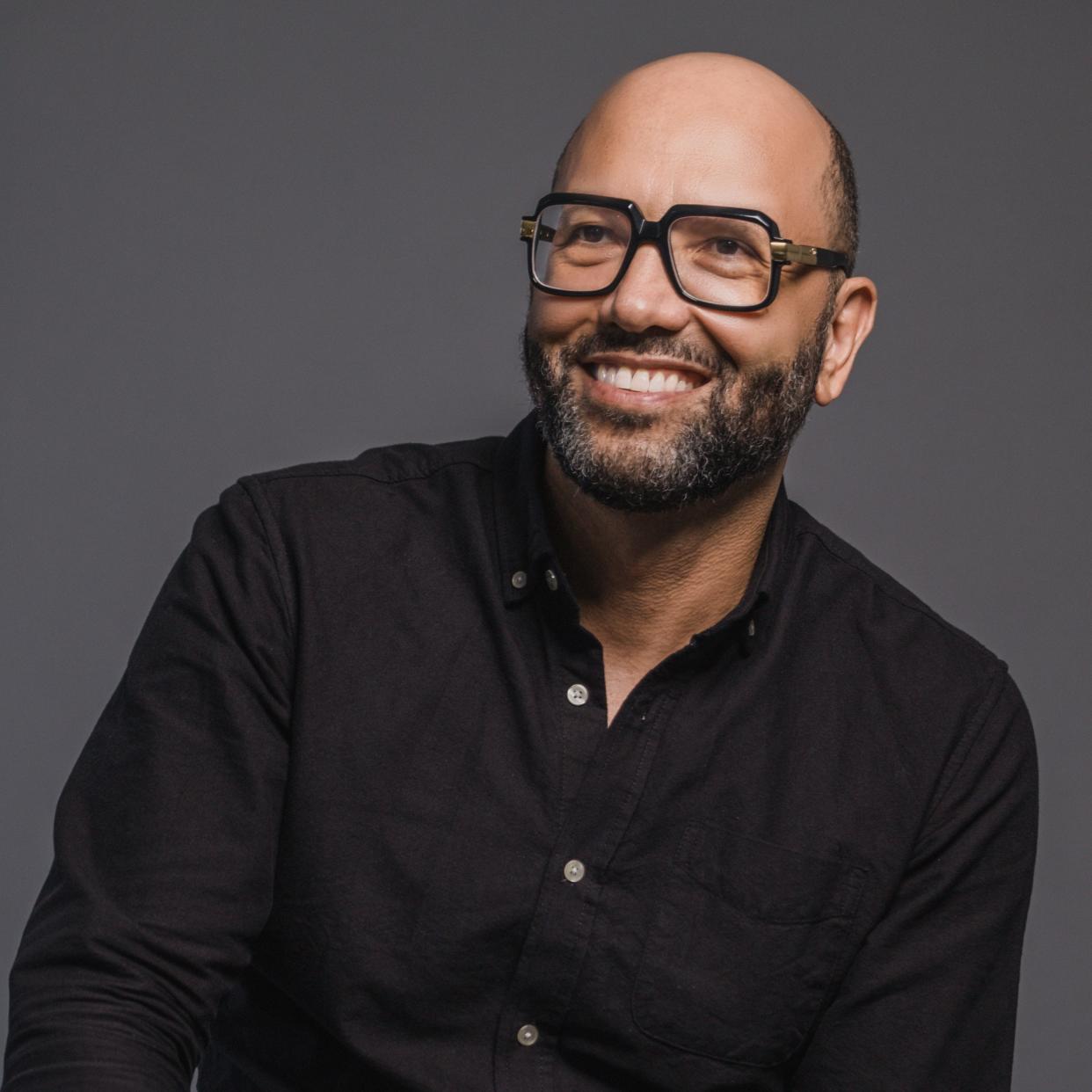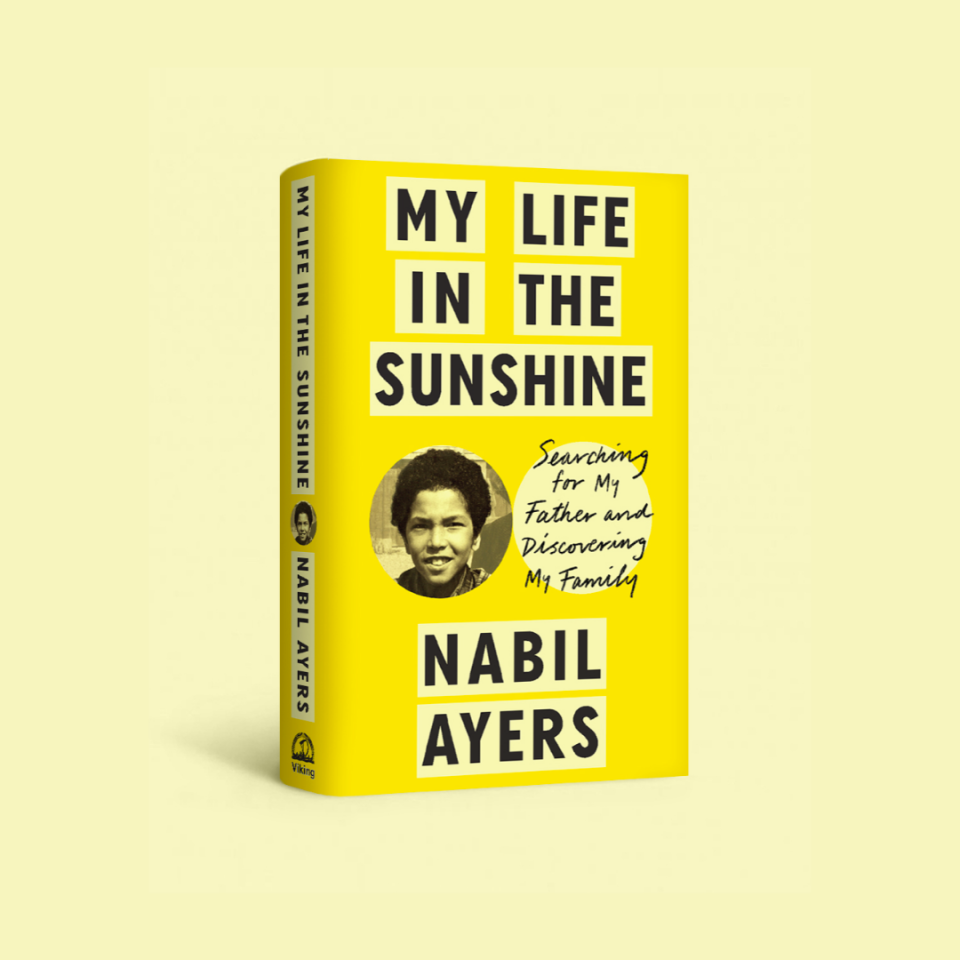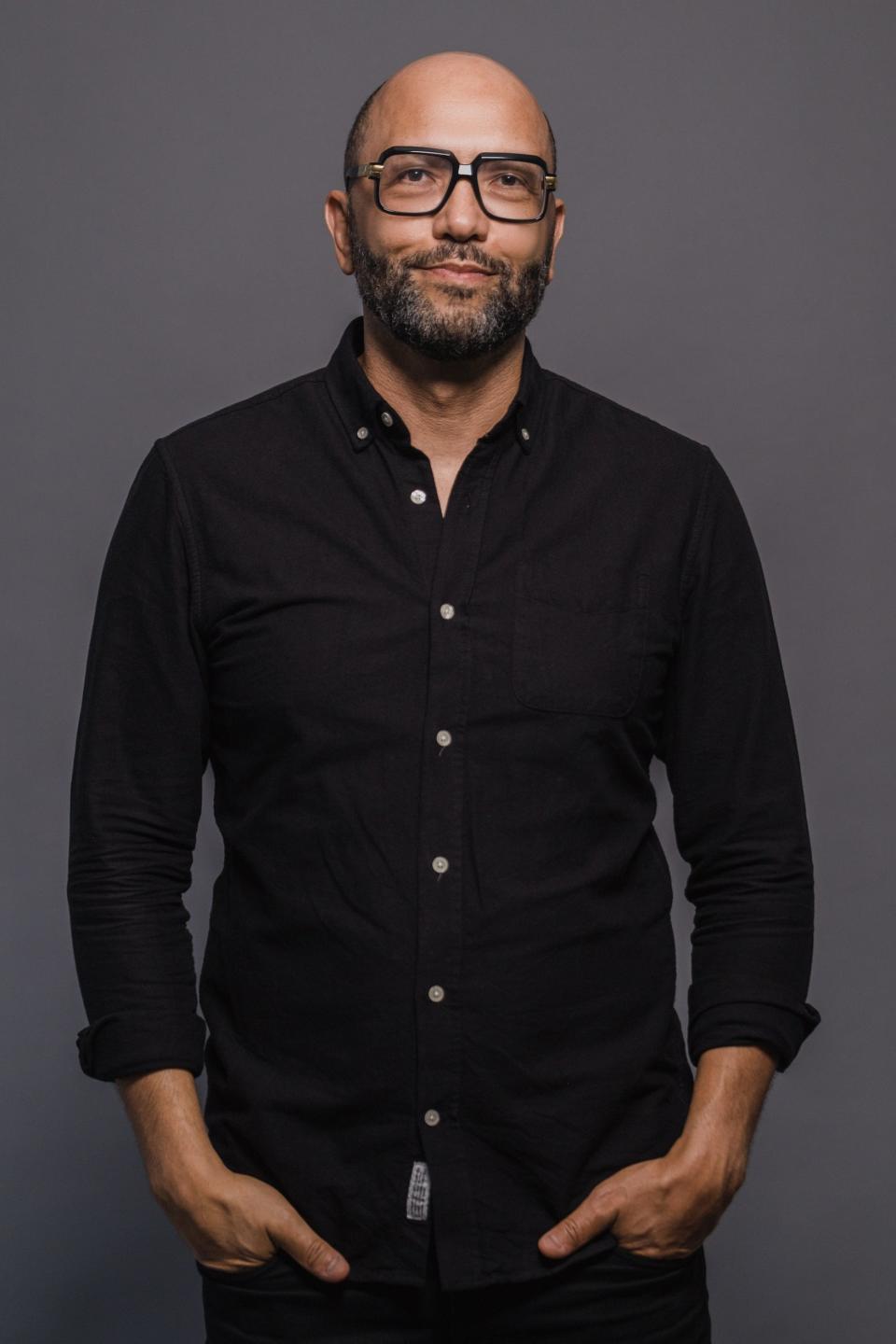'My Life in the Sunshine': Nabil Ayers talks family, race and music ahead of Stax event

- Oops!Something went wrong.Please try again later.
- Oops!Something went wrong.Please try again later.
Nabil Ayers has led a few different lives.
A longtime fixture in the Seattle music scene, Ayers is a veteran drummer (for The Long Winters and Tommy Stinson, among others), who launched the beloved Emerald City record store Sonic Boom, before becoming an indie record label executive.
But it’s his most recent incarnation, as an author and memoirist, that brings him to Memphis next week.
The now New York-based Ayers — who serves as the president of Beggars Group — will be at the Stax Museum on Feb. 23 to promote his book, “My Life in the Sunshine: Searching for My Father and Discovering My Family” (Viking), a fascinating personal study of family, race and music.
His multimedia presentation at Stax, will focus on the unique personal journey detailed in “My Life in the Sunshine.” In the mid-'70s, his mother — a white, Jewish ballerina — decided to have a child with legendary Black jazz, funk and soul musician Roy Ayers, with the understanding that he wouldn’t be involved in the child’s life. Ayers' book “recounts a life spent living with the aftermath of that decision, and his journey to build an identity of his own despite, and in spite of, his father’s absence.”
Ayers recently discussed his book with The Commercial Appeal.
Memphis in May:Who's playing Beale Street Music Festival 2023? Theories and clues point to big names
Entertainment news:Katori Hall talks 'P-Valley', Tina Turner musical and impacting culture
Q. You started your career as an indie rock drummer and record store owner before going to work for a record company. At a certain point you began writing pieces about your time in bands and on the road and at the shop. How did those stories evolve into a memoir about your life and family?
A. I'd been writing and publishing those things, and I was having a really good time doing it. But then my wife came and kind of ruined it (laughs) … but in a good way. She just said, “All this is lots of fun, but you need to write about your father and your race.” And I knew she was right.
I didn’t know how to do it exactly because I’ve only met my father a few times. I started writing about each of the times of met him, as a 5-year-old and a 10-year-old and the other times I could remember. Then I started writing about hearing his music somewhere, at a bar or a club, and just kept trying to approach it from these different angles. I quickly realized there was a lot of stuff there, and it was all coming out very honest because I didn’t think anyone would see it. ... That allowed me to be really open. If someone had said from the start, "You’re doing a book on this," I couldn’t have done it. Or I would’ve thought too much about it, and been too afraid.

Q. You’ve spent your life in rock 'n' roll, which can be a very white milieu. Did the process of writing book allow you to look at what you’ve experienced from a racial perspective in a new way?
A. I was relatively lucky because I lived in diverse places as a kid — in New York and Amherst, Massachusetts — until I was about 10. And I became a normal confident kid for that reason. There were so many kids of mixed race and different races in the cities I lived in, so it wasn’t unusual. Until I moved to Salt Lake City. (laughs) Once I got to Salt Lake it was like, “Can I touch your Afro?" and “Are you poor?” and “Where’s your father?” And I’d never heard any of those questions before. Or people would ask me why I don’t like rap music or why I didn’t pay basketball. I never felt racism that acutely — it was just people asking me a lot of questions, in high school, in college and when I started in the music scene in Seattle. But when I started thinking and writing about my life, it was easy to zoom out and see it all and see decades of it, and realize there was [racial] stuff happening every day. I just never let it get to me, and luckily it was never that scary or that bad. But it was there for sure.
Q. The book came out last summer to great reviews and response. Has its publication changed anything in terms of your personal relationship with your family or friends?
A. My relationship with my mother is great, and always has been. And with my father there’s still nothing. People ask if he’s read it, and I don’t know, I doubt he has.
All the stuff in there about my father, these are things I never talked about even with really good friends. My biggest fear before the book came out was about my friends, people I’ve known for 30 years, and what are they going to think, or will be they mad at me because I’ve never talked about it before and now I’m putting out 320 pages about it. But people have been great and understanding. In the past, I would always shake it off if anyone bought up my father. I never wanted to talk about it.
Strangely, it was easier for me to spend years writing this book and put it out there than it was to have a 5-minute conversation. So it feels great to have it out there, it’s easier to talk about and confront now. That’s been the catharsis for me.
'Sounds like Memphis': Iconic Stax recording console finds new home at Sam Phillips studio
Grammy Awards 2023:Stax's Jim Stewart honored with Trustees Award at special Grammy ceremony
Q. And what about the reaction from readers?
A. I’m always surprised at the different things people take from it. There are people who say, “This book is about your mother, what an incredible woman.” She came to the book event I did in Philadelphia a couple months after publication, and there was a line of women there to have her sign the book. That’s come through for a lot of people. But then there’s folks who empathize, who don’t have relationships with their fathers. Some people want to talk about race, some people want to talk about bands and music. There’re all these topics in it. People tend to identify with the thing that’s most close to their lives.

Q. Your upcoming event at Stax is part of a Southern tour, and you’ve done a lot of events since the book came out. Has that been a continuing part of the discovery process for you personally?
Absolutely. I love meeting people, and everywhere I go there’s someone I’m connected to or someone who played in my father’s band or I’m related to.
With Memphis especially — because in the book I talk about how my enslaved ancestors lived in Ashland, Mississippi. It’s an hour from Memphis, so when I get to town I'll be cruising around Ashland and finding out about that part of my history. Something like that happens in almost every city, and it's led to so many interesting things. That’s why I want to keep doing more of these events. If I stop, all of the stuff that’s happening will stop, and all of the stuff that is happening is so exciting I don’t want it to end.
Nabil Ayers at Stax Museum
Nabil Ayers, author of “My Life in the Sunshine: Searching for My Father and Discovering My Family”
7 p.m. Feb. 23 at the Stax Museum of American Soul Music, 926 E. McLemore
The event is free and open to the public. For more information, go to staxmuseum.com
This article originally appeared on Memphis Commercial Appeal: Nabil Ayers talks 'My Life in the Sunshine' before Stax Museum event

